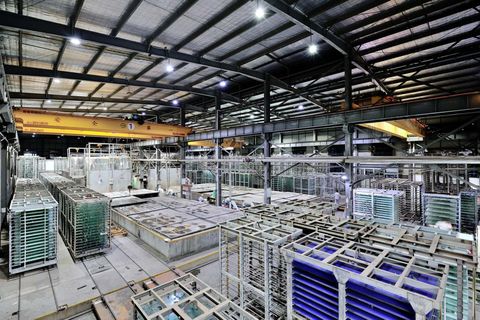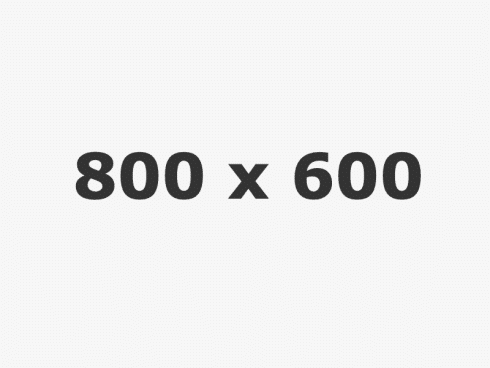Partnering with the right supplier is equally important as choosing the perfect acrylic sheet. The manufacturing quality, consistency, and timely delivery directly impact your outcome.
A trusted supplier ensures superior sheet quality, precise specifications, careful implementation, and cost-efficient project closure. Therefore, you can always stay on schedule and within budget.
This article explores what sets top acrylic sheet suppliers apart in a competitive market. It guides you through the key factors that define supplier excellence in terms of complete satisfaction.
Key Qualities of a Top Acrylic Sheet Supplier
A top supplier stands out through consistent quality, reliable delivery, and responsive service. It offers many distinctive sheet types, sizes, and finishes to meet diverse project needs. Competitive pricing, technical support, and customization options further enhance their value.
01. High-Quality Products
Product quality remains at the core of trust, performance, and long-term value. Premium-grade acrylic sheets elevate the visuals + structural integrity against reduced rework, waste, and compliance risks.
Key Features
- Optical Clarity: Optical-grade acrylic transmits 92–93% of light with <1% haze.
- Impact Resistance: Acrylic is up to 17x more impact-resistant than glass. Ideal for safety barriers, retail fixtures, and signage.
- UV Protection: UV-stabilized sheets resist yellowing and degradation in outdoor settings.
- Consistent Thickness: Uniformity ensures accurate fabrication. Premium cast sheets vary by ±0.2% across standard formats.
Why High-Quality Acrylics?
i. Project Success: High-quality sheets ensure precision in cutting, bonding, and thermoforming. It minimizes defects for an enhanced finish.
ii. Cost Efficiency: Superior material reduces breakage, warping, and discoloration. You don’t have to deal with cutting replacement and maintenance costs.
iii. Compliance: Certified sheets meet fire ratings, UV stability, and impact resistance standards. They’re critical for public installations/outdoor use.
02. Wide Range of Acrylic Types and Options
A top-tier supplier is further distinguished in the market by versatility. It holds a wide array of acrylic types in its inventory. Such versatility empowers buyers across industries to select the right material.
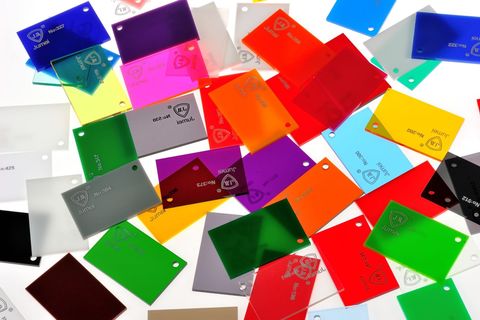
Acrylic Sheets Types
a. Clear Acrylic: Superb optical clarity (up to 92% – 93% light transmission). Ideal for glazing, displays, and barriers.
b. Colored Acrylic: Available in opaque, translucent, and fluorescent tones. Used in branding, décor, and retail.
c. UV-Resistant Acrylic: Engineered for outdoor use. Resists yellowing and degradation for 5 – 10 years.
d. Frosted (Matte) Acrylic: Diffuses light while maintaining privacy. Perfect for partitions, lighting, and signage.
e. Mirror Acrylic: Lightweight alternative to glass mirrors; used in retail, exhibitions, and safety zones.
f. Textured/Patterned Acrylic: Adds visual depth. Preferred in interior design, signage, and architectural panels.
g. Anti-Static Acrylic: Prevents eventual dust/dirt buildup. Used in electronics, cleanrooms, and packaging.
Why Sheet Variation is Important?
- Design Flexibility: Architects and designers rely on color, texture, and finish options to match brand aesthetics and spatial goals.
- Functional Precision: UV-resistant sheets are essential for outdoor signage. Meanwhile, anti-static variants serve electronics and cleanroom environments.
- Cost Optimization: Choosing the right type avoids over-specification. Frosted acrylic may cost 15% – 20% less than etched glass for similar diffusion.
- Customization and Branding: Colored and patterned sheets enable brand-specific installations, seasonal retail displays, and thematic signage.
03. Customization Capabilities
One-size-fits-all acrylic solutions rarely meet the nuanced demands of the end users. A top supplier distinguishes itself through robust customization in sizes, shapes, colors, finishes, and fabrication.
Custom Sizes (1/8), Shapes, Colors, Finishes
- Custom Sheet Sizes: Micro-panels (100×100 mm) to oversized formats (2×3 meters). It minimizes offcuts to maximize the yield.
- Precision Shapes: CNC-cut circles, polygons, lettering, and complex contours for retail displays, architectural panels, and branded signage.
- Color Matching: Pantone-matched acrylic sheets for brand consistency, seasonal campaigns, or thematic installations.
- Special Finishes: Matte, gloss, frosted, textured, anti-glare, or mirror finishes tailored to specific lighting conditions and aesthetic goals.
Fabrication Expertise: Cutting, Engraving, Molding
i. Laser Cutting: Delivers clean edges and intricate shapes; ideal for signage, logos, and retail fixtures.
ii. CNC Routing: Enables high-volume precision cutting for industrial panels and architectural designs.
iii. Engraving: Adds branding, instructions, or decorative elements across awards, panels, and displays.
iv. Thermoforming and Molding: Shapes acrylic into curves, domes, or enclosures in lighting and kiosks.
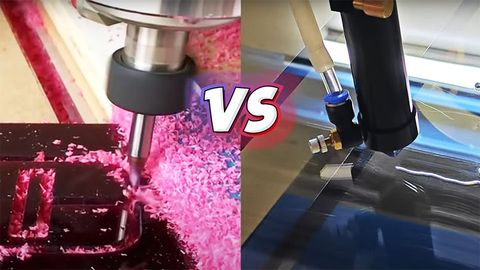
04. Timely Delivery and Reliable Shipping
In fast-paced industries, timely delivery marks a competitive advantage. A top supplier understands that missed deadlines can lead to stalled installations, lost revenue, and strained client relationships.
Why Timely Delivery is Mandatory?
a. Project Continuity: On-time delivery ensures fabrication, installation, and launch phases proceed without costly delays.
b. Cost Control: Delays can trigger expedited shipping fees, overtime labor, and missed promotional windows, especially in retail and event-driven sectors.
c. Client Trust: Consistent delivery can widely build credibility with procurement teams, contractors, and brand managers.
Reliable Shipping Logistics
i. Fast Turnaround Times: Standard sheets are shipped within 24–72 hours. Custom orders within 5 – 10 days.
ii. Global Fulfillment: Multi-location warehouses and export capabilities for international buyers.
iii. Real-Time Tracking: GPS-enabled tracking and automated updates for transparency and planning.
iv. Cost-Effective Options: Tiered shipping (standard, express, bulk freight) to match budget and urgency.
v. Damage-Free Packaging: Protective film, edge guards, and reinforced crates to prevent transit damage.
06. Competitive Pricing and Transparent Costing
Pricing in procurement is about numbers to induce value, predictability, and trust. A top supplier strikes the right balance between affordability and quality to offer competitive rates without cutting corners.
Competitive Pricing Without Compromising Quality
- Economies of Scale: Bulk sourcing and high-volume production reduce per-unit costs.
- Efficient Manufacturing: Advanced extrusion or casting processes minimize waste and optimize yield.
- Smart Logistics: Regional warehousing and consolidated shipping lower freight costs.

Transparent Costing: No Hidden Fees + No Surprises
a. Itemized Quotations: Clear breakdown of sheet cost, customization, packaging, and shipping.
b. Upfront Customization Fees: Engraving, cutting, or molding charges disclosed before order confirmation.
c. Tax and Duty Clarity: For cross-border buyers, import duties and VAT are clearly stated.
d. No Hidden Surcharges: No surprise fees for handling, rush orders, or minimum quantity gaps.
07. Customer Support and After-Sales Service
A top supplier stands out by delivering exceptional customer support and after-sales service. It ensures buyers receive the right product along with the guidance, troubleshooting, and technical expertise.
Pre-Purchase Support
i. Consultative Sales: Helping buyers choose between cast vs extruded acrylic, thickness grades, finishes, and UV protection based on use case.
ii. Application Matching: Recommending sheet types for specific environments (frosted acrylic for privacy partitions, mirror acrylic for retail décor).
iii. Technical Datasheets: Providing ASTM, ISO, and RoHS compliance documentation to support engineering, safety, and procurement audits.
After-Sales Services
a. Installation Advice: Guidelines on cutting, bonding, and mounting to avoid stress cracks or warping.
b. Care and Maintenance Tips: Instructions for cleaning, polishing, and UV protection to extend sheet lifespan.
c. Issue Resolution: Responsive handling of defects, delivery damage, and/or specification mismatches.
d. Warranty and Replacement: Clear policies for material failure, discoloration, or dimensional inconsistencies.
08. Sustainability Practices
Global industries shift toward greener operations. No wonder sustainability has become a defining benchmark for supplier credibility. And a top acrylic sheet supplier demonstrates a clear commitment.
Eco-Friendly (Recycled) Acrylic Options
- Recycled Acrylic Sheets: Post-industrial or post-consumer waste, these sheets reduce landfill impact. Some offer up to 100% recycled content.
- Bio-Based Acrylic Alternatives: Emerging technologies now allow partial substitution of petroleum-based monomers with plant-derived sources, reducing fossil dependency.
- Take-Back Programs: Some suppliers offer end-of-life recycling services. It allows customers to return the used sheets for reprocessing.
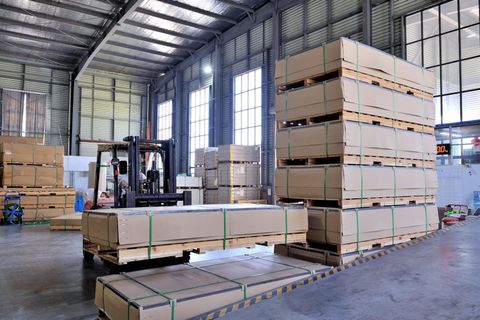
Responsible Manufacturing Processes
a. Closed-Loop Water Systems: Reduce water waste in cooling and polishing processes.
b. Low-VOC Emissions: Minimizes air pollution during sheet extrusion and thermoforming.
c. Energy-Efficient Equipment: Cuts electricity usage by 15–25% in casting and cutting operations.
d. Waste Segregation and Reuse: Recycles offcuts and scrap into new sheet batches.
Certifications Regarding Eco-Friendly Credentials
I. ISO 14001: Environmental management certification ensuring systematic reduction of ecological impact.
ii. RoHS Compliance: Restriction of hazardous substances, especially relevant for electronics and signage applications.
iii. REACH Registration: Ensures chemical safety and transparency across the supply chain.
iv. GreenGuard or LEED Contributions: Acrylic sheets that contribute to building certifications through low emissions and sustainable sourcing.
Why Choose the Right Acrylic Sheet Supplier?
Selecting the right acrylic sheet supplier is more like a strategic investment. Otherwise, your project’s success, quality assurance, cost control, and creative flexibility can be hampered.
01. Ensures Project Success
A dependable supplier delivers high-quality materials on time. You can avoid costly delays, rework, and client dissatisfaction. Inferior sheets are prone to warping, cracking, or inconsistent thickness. They can derail fabrication schedules and compromise structural integrity.
02. Enhances the Quality of Work
Premium acrylic or plexiglass sheets offer superior optical clarity, impact resistance, and UV stability. They create a professional and polished finish, unlike plastics like polycarbonate. You can glue multiple sheets with solvent adhesives for stock shopping.
03. Cost-Effectiveness
The right supplier optimizes costs through durable materials that reduce replacement frequency. You can enjoy bulk discounts for high-volume orders (10% – 25% savings). Precise cuts can minimize offcuts and fabrication waste.
04. Better Customization and Versatility
- Sizes/Shapes: CNC-cut panels, logos, and contours for signage, architecture, and retail.
- Colors and Finishes: Pantone-matched tones, frosted, matte, gloss, and mirror options.
- Fabrication: Laser cutting, engraving, and thermoforming for branded or curved elements.
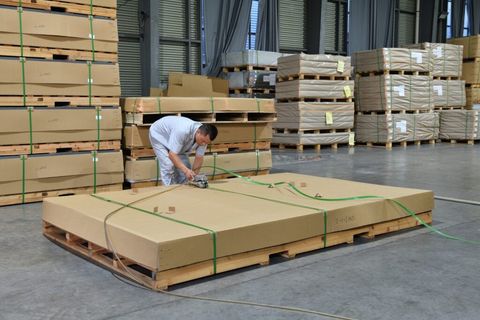
How to Evaluate the Quality of a Top Acrylic Sheet Supplier?
Evaluating a top acrylic sheet supplier starts with assessing quality, consistency, and compliance. Look for suppliers with a wide range of sheet types. Reliable delivery, transparent pricing, and responsive customer support are essential.
01. Requesting Samples
Request product samples before committing to bulk orders or custom fabrication. Samples offer a tangible preview of the supplier’s material quality, finish consistency, and production standards.
Why are Samples Necessary?
a. Material Quality: Check for brittleness, surface defects, and edge integrity.
b. Thickness Consistency: Use calipers to verify uniformity across the sheet (±0.2% for cast acrylic).
c. Finish and Texture: Assess gloss, matte, frosted, or patterned surfaces under varied lighting.
d. Optical Clarity: For clear sheets, test light transmission and haze levels (target: >92%).
e. Color Accuracy: Match against Pantone or brand standards for retail and signage applications.
Can Samples Validate Supplier Quality?
i. Benchmarking: Compare samples from multiple suppliers to assess the overall clarity, rigidity, and finish uniformity.
b. Risk Mitigation: Identify potential issues like warping, yellowing, or inconsistent thickness before full-scale production.
c. Customization Verification: Confirm color matching, engraving depth, or pre-drilled holes for project-specific needs.
d. Fabrication Testing: Run small-scale cutting, bonding, or thermoforming trials to ensure compatibility with your workflow.
What to Ask?
- Can you provide samples of both cast and extruded acrylic?
- Are samples available in multiple finishes (gloss, matte, frosted)?
- Can you include technical datasheets with the samples?
- Will the sample reflect the exact specs of bulk/custom orders?
02. Customer Reviews and Case Studies
Technical specs and pricing only tell part of the story. To truly assess reliability, responsiveness, and long-term value, buyers must examine customer reviews, testimonials, and real-world case studies.
Why Go through Reviews and Case Studies?
- Performance Validation: Reviews reveal how well suppliers deliver on promises – timely shipping, consistent quality, and customization accuracy.
- Service Assessment: Testimonials highlight responsiveness, technical support, and after-sales service toward a happy outcome.
- Risk Mitigation: A variety of case studies expose potential red flags like recurring defects, poor packaging, or communication gaps.
- Industry Fit: Real-world examples are an easy way to know how suppliers adapt to signage, retail, architectural, or industrial cases.
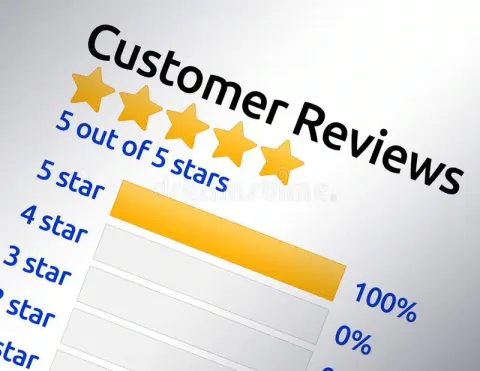
What to Look for in Reviews?
a. Star Ratings: General satisfaction, but dig deeper into written feedback.
b. Delivery Feedback: Timeliness, packaging quality, and damage rates.
c. Product Quality Notes: Clarity, thickness consistency, finish accuracy, and durability.
d. Service Experience: Responsiveness, issue resolution, and technical guidance.
e. Repeat Business: Indicates trust and long-term supplier relationships.
What to Ask?
- Can you share recent client testimonials or case studies?
- Do you have references from similar industries or project types?
- How do you handle negative feedback or delivery issues?
- Are your reviews verified on third-party platforms?
03. Certifications and Industry Standards
Sourcing acrylic sheets from certified suppliers is essential for certain sectors. Certifications and adherence to industry standards signal that a supplier’s products meet rigorous benchmarks.
Key Certifications
i. ISO 9001: Quality management systems; consistent production and customer satisfaction.
ii. ISO 14001: Environmental management; sustainable manufacturing and waste reduction.
iii. ASTM D4802 / D1003: Acrylic sheet specifications; clarity, thickness, and mechanical properties.
iv. RoHS Compliance: Restriction of hazardous substances; safe for electronics and public spaces.
v. REACH Registration: Chemical safety and transparency across the supply chain.
vi. UL 94 / EN 13501: Fire resistance ratings for acrylic used in public or architectural settings.
Why Certifications Matter?
- Quality Assurance: Certified suppliers follow standardized production protocols, reducing variability and defects.
- Regulatory Compliance: For public installations, architectural builds, and export projects, certified materials help meet fire safety, chemical safety, and environmental regulations.
- Risk Mitigation: Certifications reduce liability in case of product failure, discoloration, or structural compromise.
- Procurement Confidence: Buyers can trust that certified suppliers meet international benchmarks. It’s mandatory for cross-border sourcing and large-scale rollouts.
How to Verify Supplier Certifications?
i. Request Documentation: Ask for ISO, ASTM, RoHS, or REACH certificates and recent audit reports.
ii. Check Validity: Confirm certification numbers and expiration dates via issuing bodies (ISO.org, UL.com).
iii. Review Technical Datasheets: Ensure sheets meet dimensional tolerances, clarity benchmarks, and mechanical strength standards.
iv. Ask About Testing Protocols: Top suppliers conduct in-house or third-party testing for haze, tensile strength, and UV resistance.
What to Ask?
- Are your acrylic sheets certified under ISO 9001 or ASTM D4802?
- Can you provide RoHS or REACH documentation for chemical safety?
- Do you offer fire-rated acrylic for public or architectural use?
- How often are your products tested for compliance and performance?
04. Return and Warranty Policies
Even the most meticulous planning can encounter unexpected issues. That’s why evaluating a supplier’s return and warranty policies reflects the supplier’s confidence and their commitment to client satisfaction.
Why Return + Warranty Policies Matter?
- Risk Mitigation: Defective or damaged sheets can halt fabrication, delay installations, and inflate costs. A responsive return policy helps recover quickly.
- Quality Assurance: Strong warranties signal that the supplier stands behind their materials, especially for UV-resistant, fire-rated, or custom acrylic.
- Procurement Confidence: Clear terms reduce ambiguity, enabling buyers to plan budgets and timelines with greater certainty.
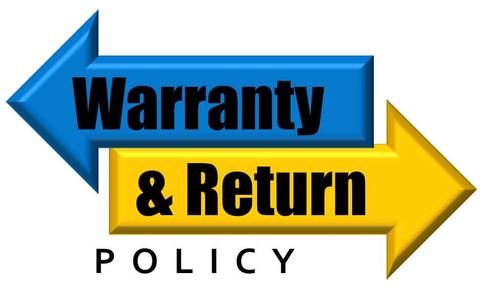
What to Look for?
a. Return Window: Typical range of 7 – 30 days post-delivery; longer windows reflect flexibility.
b. Defect Coverage: Includes cracks, warping, discoloration, or spec mismatches.
c. Transit Damage Protocol: Supplier may offer replacements or refunds if damage is reported within 48 hours.
d. Warranty Duration: Often 1 – 3 years for UV-resistant or specialty sheets.
e. Custom Order Clauses: Clarifies whether customized sheets are eligible for partial refunds or rework.
f. Repair/Exchange Options: Indicates willingness to resolve issues without full returns.
What to Ask?
- What is your return window for standard and custom acrylic sheets?
- Do you cover transit damage, and how should it be reported?
- What defects are covered under your warranty?
- Are partial returns or exchanges allowed for bulk orders?
- Do you offer repair or rework services for minor defects?
Conclusion
Selecting the right acrylic sheet supplier lays the foundation for project success. The best ones stand out through constant quality, diverse options, responsive service, and reliable delivery. They have materials and solutions tailored to your design, timeline, and performance needs.
Set JUMEI as Your Top Acrylic Supplier
Matching so many specifications against complex industry standards doesn’t have to get messed up. Jumei Acrylic is ready to meet your satisfaction with optimal quality, absolute precision, and steadfast services. Contact us to know more about our comprehensive acrylic production.

